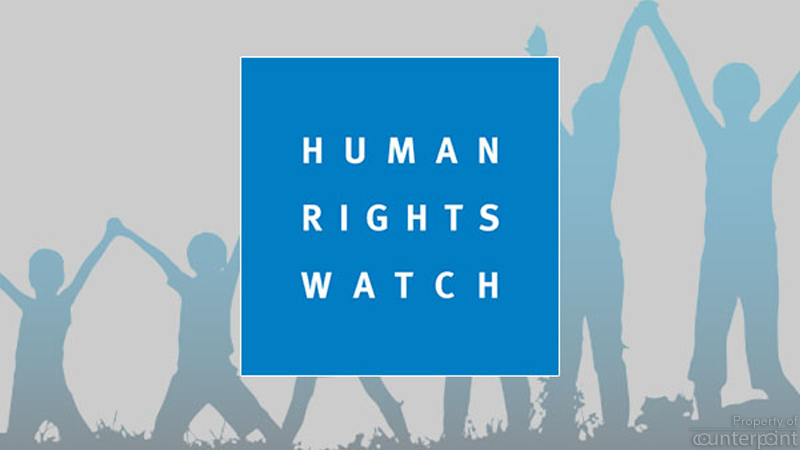(Geneva) – Sri Lanka’s government is aggressively attacking efforts to hold officials to account for past grave abuses, Human Rights Watch said in a report released today.
The 93-page report, “Open Wounds and Mounting Dangers: Blocking Accountability for Grave Abuses in Sri Lanka,” examines efforts by the government to thwart justice in seven prominent human rights cases. It describes the current context of government repression of activists, journalists, lawyers, and the families of victims, as well as threats against vulnerable minorities. The United Nations Human Rights Council, at its session beginning February 22, 2021, should adopt a resolution upholding justice for serious international crimes in Sri Lanka and condemning ongoing abuses.it said
“The Sri Lankan government’s assault on justice increases the risk of human rights abuses today and in the future,” said John Fisher, Geneva director of the Human Rights Watch.
“The UN Human Rights Council should adopt a resolution at its upcoming session that demonstrates to the Sri Lankan administration that the world won’t ignore its abuses and offers hope of justice to victims’ families.”
Efforts to provide accountability significantly declined during 2020, Human Rights Watch said. Senior police officers investigating killings and enforced disappearances committed during the Rajapaksa administration have fled the country or been charged with apparently fabricated offenses. A commission appointed by the president has sought to interfere in criminal cases involving his allies and supporters.
Trials of military and intelligence officials accused of enforced disappearances have been delayed and disrupted. And the Rajapaksa-dominated parliament passed an amendment to the constitution that abolishes key checks on presidential power, undermining the independence of the judiciary and institutions such as the Human Rights Commission of Sri Lanka.it said
Atrocities by government security forces and the separatist Liberation Tigers of Tamil Eelam (LTTE) during Sri Lanka’s 26-year civil war, which ended in 2009, have been well documented by the UN, the media, and domestic and international human rights groups, including Human Rights Watch. The UN’s internal Petrie Report exposed the systemic failures of the UN to help protect civilians in the war’s final months.





